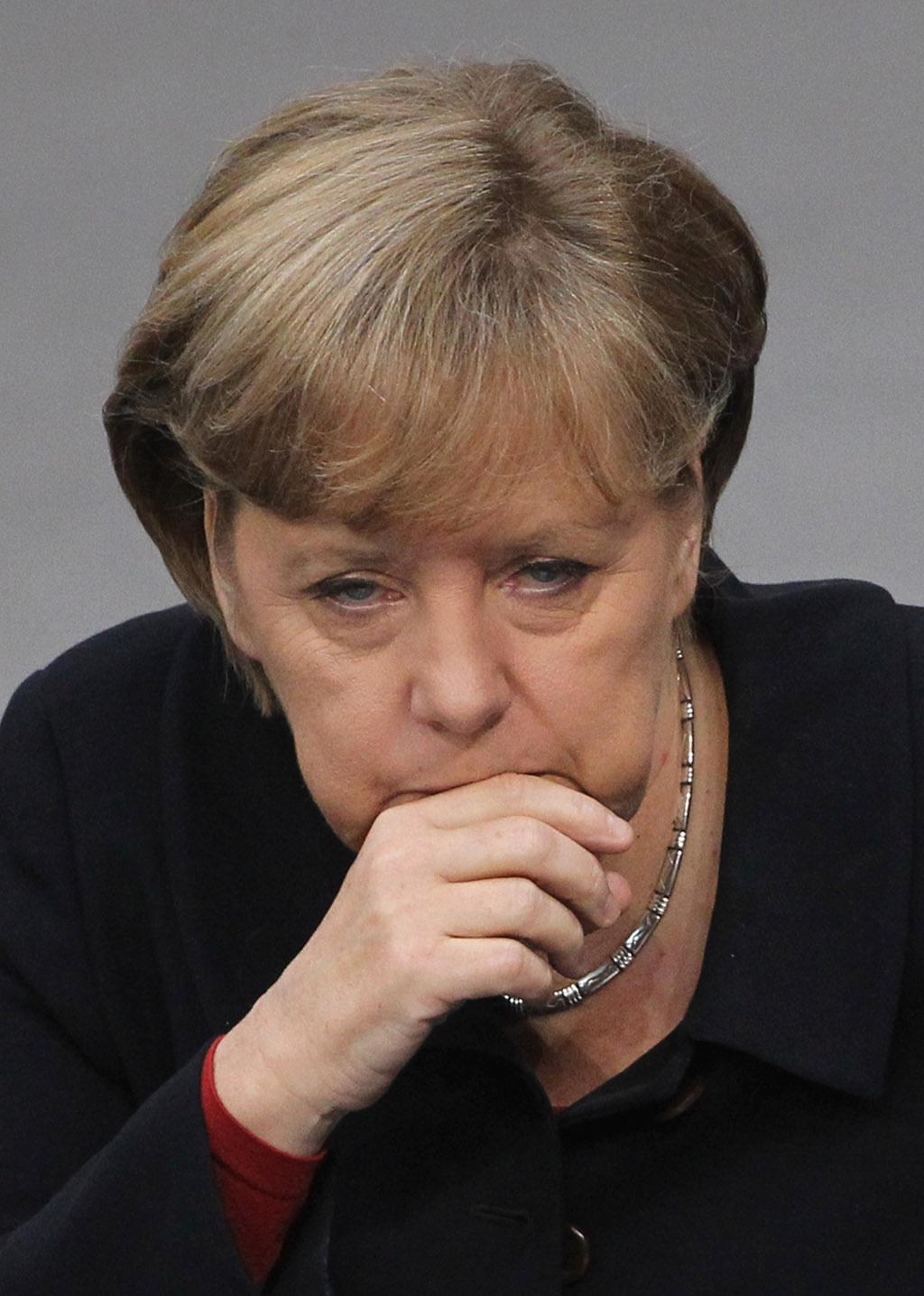Euro crisis: a plan emerges
Angela Merkel prepares to tell the German Bundestag the only way out of the euro mess is through deeper fiscal ties with their more profligate European partners.
Europe has been enveloped in a miasma of panic for months now as a solution to the euro zone debt crisis looked like it would overwhelm the single currency and bring down the European and world economy.
But in the last 24 hours a strategy is emerging that looks to have the backing of Europe's Big Three: German Chancellor Angela Merkel, French President Nicolas Sarkozy and European Central Bank chief Mario Draghi.
In a set of coordinated speeches all three have thrown their backing for fiscal union.
Speaking today at the Bundestag, Chancellor Merkel said, "The euro has proven its value. It is stable. But it is a lot more than a currency. It represents Europe's will to unite within and to face global challenges."
The next phase of the unity project is a common fiscal policy. Merkel told her parliament the process was underway: "We are not only talking about a fiscal union, we are beginning to create it."
Merkel's speech followed similar public statements yesterday by Sarkozy and Draghi. The latter hinted heavily that if concrete steps are taken towards fiscal union than the ECB will buy more bonds from the euro zone countries worst affected by the sovereign debt crisis – like Italy and Greece. But clear progress towards fiscal union must be made first.
What would fiscal union look like? Don't ask me. You probably shouldn't ask Merkel or Sarkozy quite yet. Merkel would like there to be legally enforceable rules overseen from Brussels on individual euro nations' annual budgets. Sarkozy has not signed on for this.
However, both are committed to rapidly agreed changes to the treaties which created the euro. the pair meet on Monday to hammer out details in advance of an EU summit next Friday.
If that summit can't keep the process moving forward at that meeting I think that will be the end point. The Euro will be devoured by the bond markets and the world economy will enter a twilight zone whose endpoint cannot be divined.
Every day, reporters and producers at The World are hard at work bringing you human-centered news from across the globe. But we can’t do it without you. We need your support to ensure we can continue this work for another year.
Make a gift today, and you’ll help us unlock a matching gift of $67,000!
